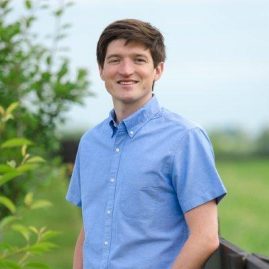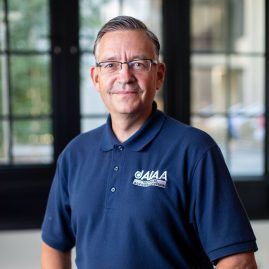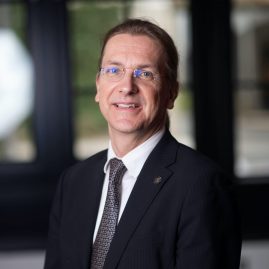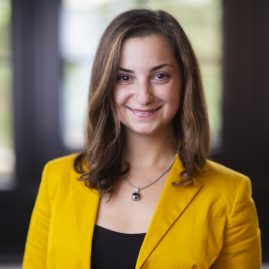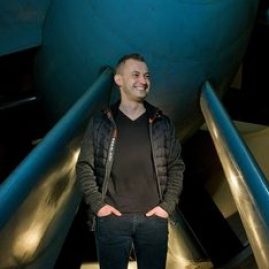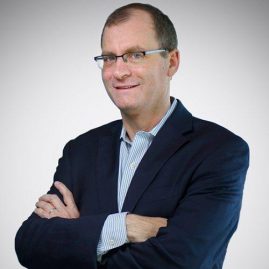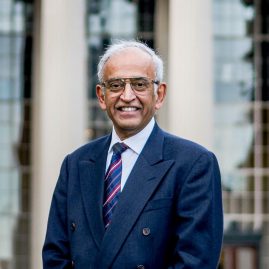Certificate in Aerospace Innovation

Innovation through entrepreneurship is the future of aerospace. In collaboration with the Martin Trust Center for MIT Entrepreneurship, the MIT Department of Aeronautics and Astronautics (“MIT AeroAstro”) launched the Certificate in Aerospace Innovation to address this growing need. Open to AeroAstro seniors, graduate students (S.M./Ph.D.), postdocs, and staff, the cross-disciplinary curriculum consists of coursework in the aerospace-focused domain and in the entrepreneurship-focused domain offered by the Sloan School of Management. We expect a cohort of 10-20 participants will obtain the certificate each academic year.
The certificate is open to AeroAstro seniors, all graduate students, postdocs, and staff in the MIT community; however, in the case of over-enrollment, first priority will be given to applicants associated with Course 16, i.e. MIT AeroAstro. The certificate is optional and is not a requirement for graduation at the S.M. and Ph.D. level, but some of the classes and workshops associated with it may carry some academic credit that may be counted towards a degree program.
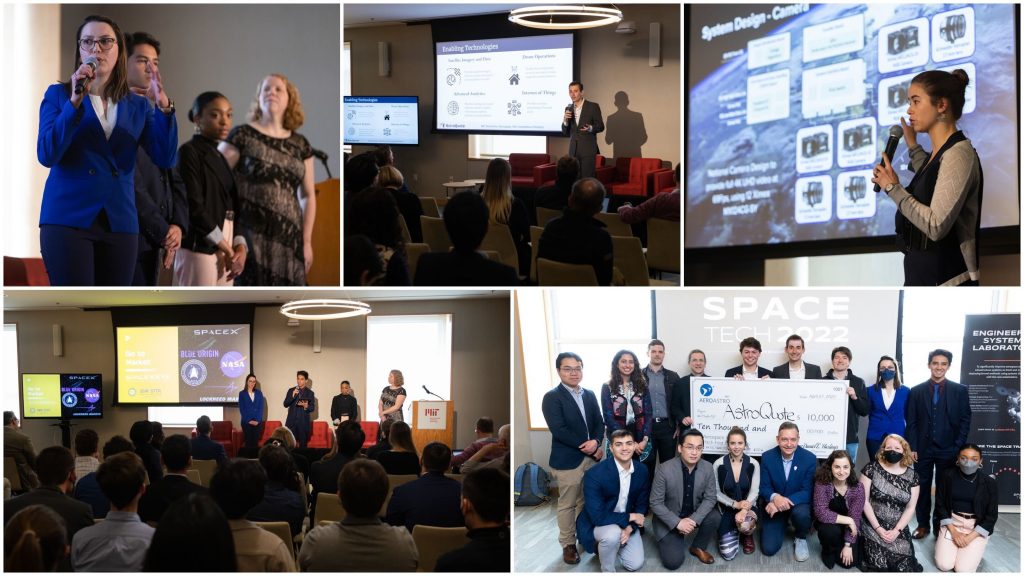
Background
The field of Aerospace Engineering as we know it today started in the late 1800s and early 1900s with the advent of heavier-than-air aircraft pioneered by the Wright Brothers (and others), leading to their first successful flight at Kitty Hawk in 1903. The early days of aviation were marked by individual inventors and experimentation and relatively little government intervention or sponsorship. One important exception is the subsidized air mail service. Prizes for establishing new records for distance and endurance were a major driver of progress. This changed with the advent of WWI and WWII, where aviation became a major contributor to the war effort. In space, the story begins in 1957 with the launch of Sputnik by the Soviet Union and continued with the lunar landings of the U.S. Apollo program from 1969-1972. Today, the aerospace sector has returned to its original roots of innovation and entrepreneurship, driven not exclusively by large government or corporate entities, but by small and mid-size firms. These are experimenting with, and launching electric Vertical Takeoff and Landing and electric Short Takeoff and Landing (eVTOL and eSTOL) vehicles, cutting-edge CubeSat missions, and new drone-enabled services that offer data analytics in agriculture, renewable energy and in other sectors. Students in Aerospace Engineering and related fields have expressed a strong desire to hear from and learn about how to launch their own ventures and initiatives in aerospace. Responding to this need, the MIT Department of Aeronautics and Astronautics launched the Certificate in Aerospace Innovation in collaboration with the Martin Trust Center for MIT Entrepreneurship in 2021.
Overview
Upon entering the program, students will be asked to designate whether they want to participate in Track A or Track B. The certificate program comprises three main elements, with different requirements depending upon the track chosen:
- Coursework (outlined in further detail below) with classes offered by MIT AeroAstro, MIT Electrical Engineering and Computer Science (Course 6) and Sloan School of Management (Course 15).
- Participation in an innovation incubator activity. If students designate Track A, they will be required to participate in the Aerospace Innovators Workshop during IAP, where students will be expected to draft a business plan and pitch deck for a new aerospace-related startup. Working in teams, students will present their business plans identifying the underlying technical innovation and potential for business disruption to a panel of aerospace-related venture capitalists and entrepreneurs for feedback and scoring. A sponsored prize of $10K will be awarded to the top finisher. Students who designate Track B can satisfy the requirements for the certificate by participating in some of the hands-on MIT summer programs in entrepreneurship and business acceleration, such as MIT Delta v or the Venture Exploration Program.
- Attendance at the Aerospace Innovation Seminar Series, where speakers from some of the biggest names in entrepreneurial aerospace will share their experiences and answer questions about their respective paths into industry.
Registration has closed!
Registration for the 2024-2025 academic year has closed! Registration closed on Friday, October 4, 2024 (on Add Date). Contact aa-innovation@mit.edu to learn more.
Program Requirements Summary
| Element | Track A | Track B |
|---|---|---|
| 1. Aerospace Innovation Courses | Minimum 18 units, one class from each domain column | Minimum 12 units, one class from each domain column |
| 2a. Aerospace Innovation Workshop (StartMIT) | Required | Optional |
| 2b. MIT Summer Acceleration Program | Optional | Required |
| 3. Aerospace Innovator Seminar Series | Required | Required |
Please note that certificate participants have two years to complete the program once they enroll (register).
Meet the MIT Aerospace Innovation Team
Get in touch with the program team: aa-innovation@mit.edu.
Curriculum
The following classes and organized activities are part of the certificate. These classes are both aerospace domain-specific (left side) and entrepreneurship and innovation specific (right side). The list of classes will be reviewed and updated on an annual basis.
In order to qualify for the Certificate in Aerospace Innovation, candidates must take at least two classes from this list for credit and must receive at least a letter grade of B. At least one class must be from the aerospace domain (left column), and one from the innovation domain (right column) for a total of at least 18 units for Track A and at least 12 units for Track B. Candidates for the certificate are welcome to take additional classes, but the above requirement is the minimum. If a candidate opts to take the MIT delta v or the Venture Exploration Program (VEP), units will be counted as shown in track B below.
Aerospace Domain Courses
- 16.110 Flight Vehicle Aerodynamics (3-1-8 = 12 units) (Fall)
- 16.445J Entrepreneurship in Aerospace and Mobility Systems (3-0-9= 12 unit) (Spring) (Not offered 2025-2026 academic year)
- 16.453[J] Human Systems Engineering (Grad-level) (3-0-9= 12 units) (Fall)
- 16.511 Aircraft Engines and Gas Turbines (3-0-9= 12 units) (Fall)
- 16.707[J] The History of Aviation (3-0-9 = 12 units) (Spring) (Not offered 2024-2025 academic year)
- 16.71 The Airline Industry (3-0-9 = 12 units) (Fall)
- 16.842 Fundamentals of Systems Engineering (2-0-4 = 6 units) (Fall)
- 16.855[J] Systems Architecting Applied to Enterprises (3-0-9 = 12 units) (Spring)
- 16.88[J] Prototyping our Sci-Fi Space Future: Designing & Deploying Projects for Zero Gravity Flights (not offered regularly; please consult department)
- 16.886 Air Transportation Systems Architecting (3-2-7 = 12 units) (Fall) (Not offered 2025-2026 academic year)
- 16.893 Engineering the Space Shuttle (3-0-9 = 12 units) (Fall) (Not offered 2024-2025 academic year)
- 16.895[J] Engineering Apollo: The Moon Project as a Complex System (4-0-8 = 12 units) (Fall) (Not offered 2024-2025 academic year)
Innovation Domain Courses
- 16.990[J] Leading Creative Teams (3-0-6= 9 units) (Fall, Spring)
- 6.9270 Negotiation and Influence Skills for Technical Leaders (2-0-4 = 6 units) (Fall)
- 6.S979 Multi-Stakeholder Negotiation for Technical Experts (2-0-4 = 6 units) (not offered regularly; please consult department)
- 15.364 Innovation Ecosystems for Regional Entrepreneurship Acceleration Leaders (iEco4REAL) (3-0-6 = 9 units) (Spring)
- 15.368 Disciplined Entrepreneurship Lab (1-0-5 = 6 units) (IAP)
- 15.369 Entrepreneurship in Organizations (3-0-6 = 9 units) (Spring)
- 15.378 Building an Entrepreneurial Venture: Advanced Tools and Techniques (3-1-8 = 12 units)
- 15.379[J] Mobility Ventures: Driving Innovation in Transportation Systems (3-3-6 = 12 units) (Fall)
- 15.390 Entrepreneurship 101: Systematic Approach to New Venture Creation (2-2-8 = 12 units) (Fall, Spring)
- 15.394 Entrepreneurial Founding and Teams (3-0-6 = 9 units) (Spring)
- 15.618 Startups and the Law (2-0-4 = 6 units) (Fall, Spring)
- 15.911 Entrepreneurial Strategy (6-0-3 = 9 units, H1) (Fall, first half of term)
Participate in an Innovation Incubator Activity
Upon joining the program, participants will be asked to designate either Track A or Track B to fulfill this requirement.
For Track A, students will participate in StartMIT (Aerospace Innovation Workshop during IAP). The main deliverables of the workshop are a draft business plan and a pitch deck (a short 20 min presentation followed by Q&A with a panel of judges representing potential investors) for the creation of a new aerospace-related startup. This workshop will be offered annually during January and will guide participants (typically in teams of two or three) to jointly develop an aerospace-related business plan, including the explanation of the underlying technical innovation and potential for business disruption. This business plan will then be pitched to a panel of aerospace-related venture capitalists and entrepreneurs for feedback and scoring. A sponsored cash prize of $10K will be awarded by MIT AeroAstro to the top finisher.
One alternative way in which participants can satisfy the requirements for the certificate is to participate in some of the hands-on MIT summer programs in entrepreneurship and business acceleration. We recommend these two programs at MIT:
- MIT delta v (3 month summer program) in a co-working environment provided by the MIT Trust Center for Entrepreneurship to work on transforming an idea to a company
- Venture Exploration Program (6 week summer program) which is a step-by-step guided journey along the key milestones of entrepreneurship
MIT delta v is a three-month summer entrepreneurship acceleration program (June to September) hosted at the MIT Martin Trust Center for Entrepreneurship. Over this period teams will define and refine their target market, conduct primary market research, and build knowledge about their customers and users. They will run experiments to validate or invalidate their key hypotheses with potential customers. They will be building and nurturing their founding team. They will make progress on the mechanics of starting their venture. Several Aero Astro startups have successfully participated in the delta v program in the past. Entry to the delta v program is subject to a competitive application process given limited capacity.
VEP is a 6-week, virtual program for Ph.D. students, postdocs, and staff researchers to develop a business model for their research-derived product or service. VEP is also offered over the summer and is the successor to the former Translational Fellows Program (TFP) at MIT. Participants learn the methodology and techniques of customer discovery — the process of obtaining valuable, firsthand feedback on ideas for the use of technology — and business model development. Additionally, they are able to apply for day-a-week funding through participation in the NSF I-Corps national program.
Successful completion of either the delta v or the VEP programs will yield an equivalent credit of 6 units towards the Certificate in Aerospace Innovation, from the right column in the table of classes shown above, and also count in lieu of the participation in the IAP Aerospace Innovation Workshop.
However, participants who successfully complete either the delta v program or the VEP are still welcome to participate in the IAP Aerospace Innovation Workshop should they choose to do so (but it is not a formal requirement for delta v or VEP graduates).
Aerospace 10K “Pitchfest” Competition

The Aerospace 10K Competition “Pitchfest,” where six teams presented their startup business ideas focused on entrepreneurial aerospace innovation to a panel of expert judges for a chance to win a $10K prize.
Aerospace Innovator’s Seminar Series
The number of aerospace startups has been growing sharply over the last 5-10 years. Companies that will be invited to present at the aerospace innovator’s seminar series include founders from MIT, but not exclusively so. We will change the mix of companies that present every year. The seminar series may also include innovation units that are part of or embedded in larger organizations such as Skunkworks (Lockheed Martin), etc. We will strive for a healthy balance of aeronautics and astronautics businesses.
To ensure some consistency across the monthly seminar series on aerospace innovation we will pose each presenter the following questions to be addressed during their talk. They may choose to focus on a subset of these in their presentation and interaction with the participants:
- When and why did you start the venture?
- What is the key product or service offering of your firm?
- How has being an entrepreneur affected your professional and personal life?
- Who is your competition and what are the key hurdles to success?
- What are the key differentiators and what is your competitive advantage?
- How do you know your idea will be successful?
- What are your three most important recommendations to new aerospace innovators?
- What are the key technical and leadership skills needed by current and future aerospace innovators?
- What values and attitudes do you find particularly important when fundraising and talking to prospective investors and employees?
2024-2025 Speakers
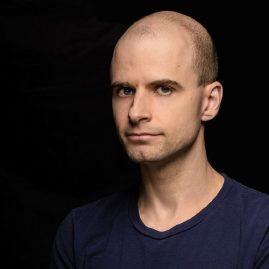
Ryan McLinko ’09, SM ’11
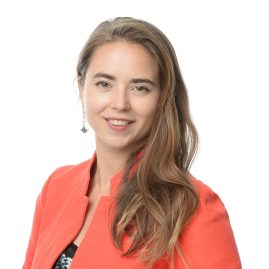
Scarlett Koller ’16, SM ’23, MBA ’23
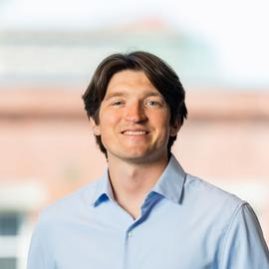
Eddie Obropta ’13 SM ’15
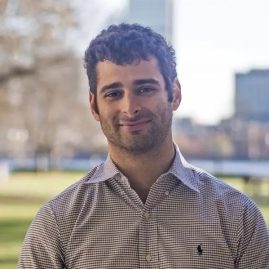
Sebastien Mannai SM ’14, PhD ’18
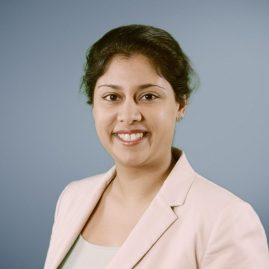
Dr. Tina P. Srivastava
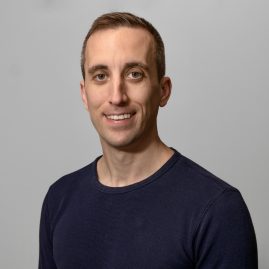
Brian Yutko, SM ’11, PhD ’14
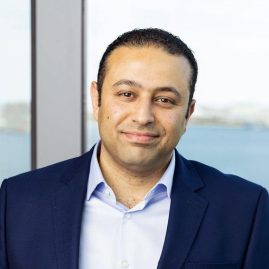
Fady Saad
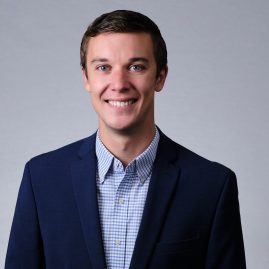
Mike Klinker, SB ’14, SM ’16
2023-2024 Speakers
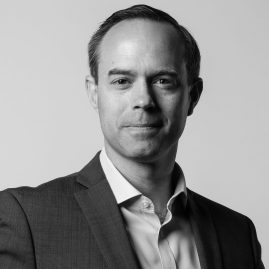
Preston Dunlap
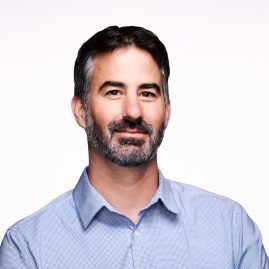
Orin Hoffman
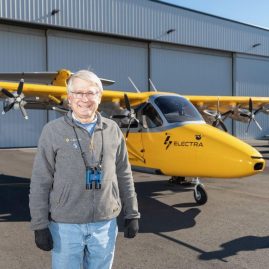
John Langford ’79, ’83, ’84, ’87
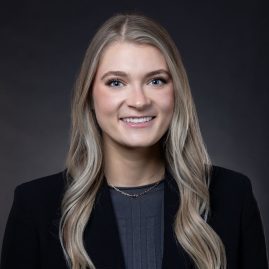
Hailey Nichols ’19
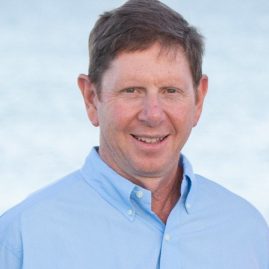
Dan Schwinn (MIT EECS ’83)
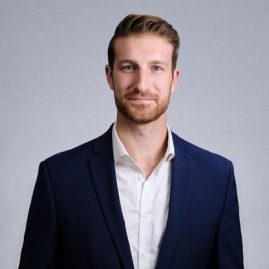
Billy Thalheimer ’14, ’16
2022-2023 Speakers
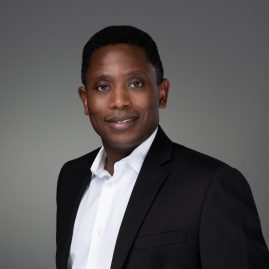
Nii Armar ’06, SM ’09
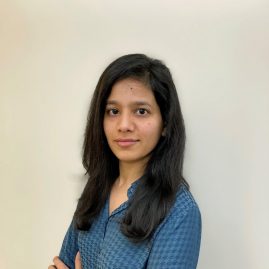
Jyotsna Budideti
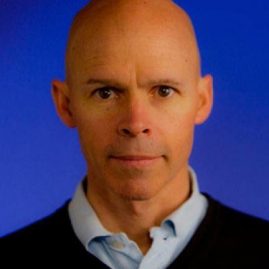
Mike Cassidy SB’85, SM’86
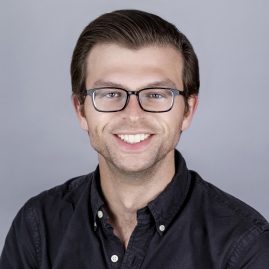
Paul Cheek
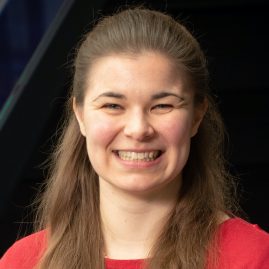
Danielle DeLatte, SB ’11
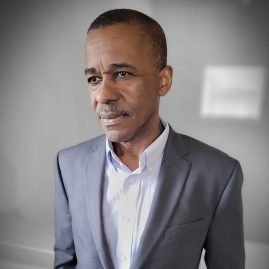
Patrick E. Hanley, PhD ’89
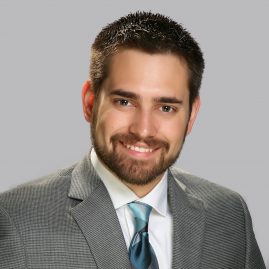
Forrest Meyen, PhD ’17

Ryan McLinko ’09, SM ’11
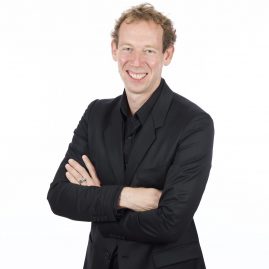
Jonathan ‘jmill’ Miller SM ’19
2021-2022 Speakers
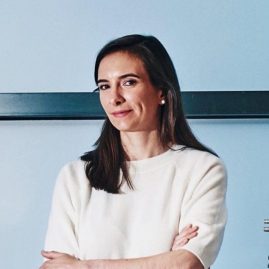
Natalya Bailey, PhD’14

Mike Cassidy SB’85, SM’86
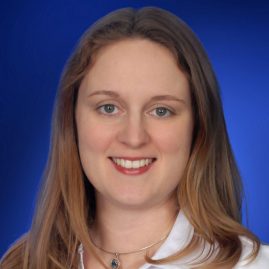
Anna Mraceck Dietrich SB’04, SM’06
